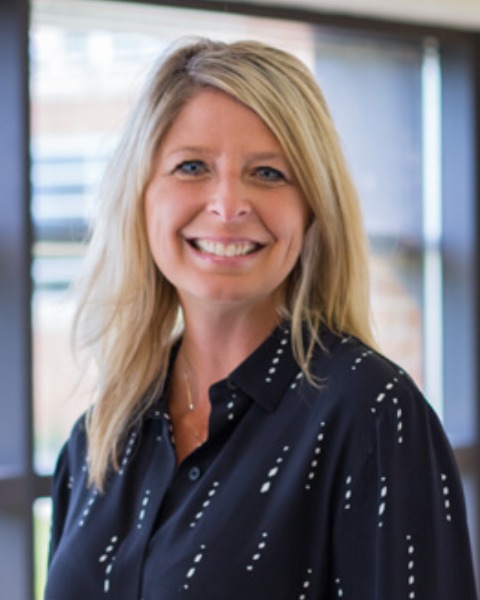Back
Cultural Competence
Intersectionality and MSW Field Education and Seminar Syllabi: Opportunities for Improvement
Saturday, November 12, 2022
2:30 PM – 3:30 PM
Location: Poster 13

Sara E. Casali, DSW, MSW, CSW
Assistant Professor/Director of Field Education
Concordia University Wisconsin
Mequon, Wisconsin, United States
Presenter(s)
Overview: CSWE recognizes the value of understanding intersectional identities by including intersectionality in the EPAS. This presentation will outline the themes of an exploratory qualitative study aimed to examine the degree to which intersectionality was infused in 27 MSW field education and field seminar syllabi and offer suggestions for improvement.Proposal text: Understanding who we are as individuals and how social identities shape our lived experiences and impact practice is a difficult but necessary exploration for social workers. Utilizing an intersectional lens or framework allows us to explore our uniqueness. Intersectionality is defined as how a person’s social location or intersecting identities, which includes gender, race, sexuality, ethnicity, social class, culture, and other identifying characteristics, converge and are impacted by power, oppression, and discrimination (Simon et al., 2021; Warner, 2008). Understanding social location requires us to look beyond individual identity characteristics of gender, race, and class to examine how they intertwine simultaneously (Murphy et al., 2009). When working from an intersectional framework or perspective, intersectionality affords a person the context to understand their social location and the interconnectedness that exists (Garcia, 2016; Murphy et al., 2009; Windsong, 2018).
Simon et al. (2021) contend that social work professionals must be in a position to work with individuals whose intersecting social identities are intensified by various oppressive systems. In order to prevent a disconnect in practice, social workers need to have a clear awareness of their intersecting identity characteristics. This personal and professional awareness should initially be developed within the classroom (Craig et al., 2017). Social work educators must challenge students to examine themselves through an intersectional lens in order to reconcile that their intersecting identities and social locations can situate them both in the position of oppressor and oppressed (Bubar et al., 2016). Social work programs are in a position to provide a safe environment for students to evaluate their social location and intersecting identities. This analysis allows students to develop an awareness of how power and oppression influence experiences and bring awareness to the power disparities that clients navigate (Alvarez-Hernandez, 2020).
This poster presentation will highlight the results of an exploratory qualitative research study which examined 27 Masters of Social Work (MSW) field education and field seminar syllabi. Themes and implications for social work education will be emphasized. Overall results bring attention to the fact that MSW field education and field seminar syllabi have significant room for improvement to incorporate intersectionality.
Though it can be challenging for social work educators to infuse intersectionality in the classroom (Craig et al., 2021), as educators, we must remain intentional when evaluating our syllabi for inclusion of this theory. This poster presentation will address opportunities to infuse intersectionality to provide students a protected space to reflect on how their intersecting identities impact their lens and views of the world. Participants will further gain appreciation for why it is essential for future social workers to learn the practice skills, knowledge, and values necessary to engage with cultural humility across diverse intersecting identities and social locations (Azzopardi, 2020). These ideas are inherently difficult to balance, and the discussions must occur first within the classroom. When intersectionality is purposefully integrated within syllabi, it can demonstrate programs’ commitment to understanding diversity and difference and the complex world we live and work in (Nash, 2017).
Simon et al. (2021) contend that social work professionals must be in a position to work with individuals whose intersecting social identities are intensified by various oppressive systems. In order to prevent a disconnect in practice, social workers need to have a clear awareness of their intersecting identity characteristics. This personal and professional awareness should initially be developed within the classroom (Craig et al., 2017). Social work educators must challenge students to examine themselves through an intersectional lens in order to reconcile that their intersecting identities and social locations can situate them both in the position of oppressor and oppressed (Bubar et al., 2016). Social work programs are in a position to provide a safe environment for students to evaluate their social location and intersecting identities. This analysis allows students to develop an awareness of how power and oppression influence experiences and bring awareness to the power disparities that clients navigate (Alvarez-Hernandez, 2020).
This poster presentation will highlight the results of an exploratory qualitative research study which examined 27 Masters of Social Work (MSW) field education and field seminar syllabi. Themes and implications for social work education will be emphasized. Overall results bring attention to the fact that MSW field education and field seminar syllabi have significant room for improvement to incorporate intersectionality.
Though it can be challenging for social work educators to infuse intersectionality in the classroom (Craig et al., 2021), as educators, we must remain intentional when evaluating our syllabi for inclusion of this theory. This poster presentation will address opportunities to infuse intersectionality to provide students a protected space to reflect on how their intersecting identities impact their lens and views of the world. Participants will further gain appreciation for why it is essential for future social workers to learn the practice skills, knowledge, and values necessary to engage with cultural humility across diverse intersecting identities and social locations (Azzopardi, 2020). These ideas are inherently difficult to balance, and the discussions must occur first within the classroom. When intersectionality is purposefully integrated within syllabi, it can demonstrate programs’ commitment to understanding diversity and difference and the complex world we live and work in (Nash, 2017).
